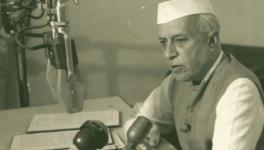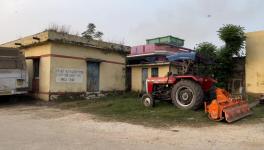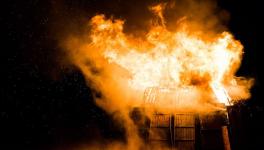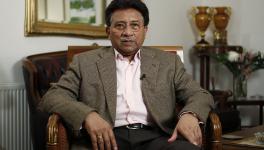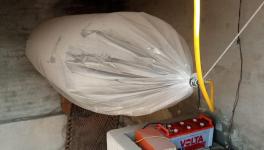Pakistan after Osama
The killing of Osama bin Laden could provide Pakistan an opportunity to reverse its downward slide, though changing course will not be easy. The country must decide whether to decisively confront Islamist violence, or continue with the military’s current policy of supporting jihadi militants with one hand even as it slaps them with the other..
Righteous wrath
Watching news of the death of Osama bin Laden in Lahore, 79-year-old Baba demands, ‘How is it possible that we have nuclear bombs, nobody can trespass in our airspace, but then helicopters from Kabul can come and no one notices?’
The most intensive manhunt in history ended on 2 May 2011 with the killing of Osama bin Laden. When an elite squad of helicopter-borne US Navy SEALs slipped into Pakistan from Afghanistan, they returned with the body of al-Qaeda’s founder-king. To the relief of many around the world, the man who had attacked and physically eliminated all he perceived as enemies of Islam – Soviets and Americans, Iraqis and Pakistanis – was dispatched to his watery grave.
Initially, the Pakistani government claimed cooperation in the operation. But this was flatly rejected by those who had laid and executed the intricate plans. John Brennan, assistant to President Barack Obama for homeland security and counterterrorism, said, ‘We didn’t contact the Pakistanis until after all of our people, all of our aircraft were out of Pakistani airspace … we were watching and making sure that our people and our aircraft were able to get out of Pakistani airspace. And thankfully, there was no engagement with Pakistani forces.’ The director of the Central Intelligence Agency (CIA), Leon Panetta, hinted at Pakistan’s complicity with al-Qaeda when he said, ‘It was decided that any effort to work with the Pakistanis might jeopardise the mission: they might alert the targets.’ Significantly, President Obama did not thank Pakistan. For Pakistan it was, as columnist Ayaz Amir put it, the mother of all embarrassments. For years, the country’s military and civilian leaders had flatly denied bin Laden’s presence in the country. Some had slyly suggested he might be in Sudan or Somalia. Others confidently claimed that he had died from a kidney ailment, or perhaps was in some intractable area protected by nature and terrain, and thus outside of the effective control of the Pakistani state. But as it turned out, of course, the world’s most famous and recognisable terrorist’s abode was within walking distance of the famed Pakistan Military Academy at Kakul, a short distance from Abbottabad, where, just days earlier, General Ashfaq Parvez Kayani had declared that ‘The terrorist backbone has been broken and inshaallah we will soon prevail.’
Get the latest reports & analysis with people's perspective on Protests, movements & deep analytical videos, discussions of the current affairs in your Telegram app. Subscribe to NewsClick's Telegram channel & get Real-Time updates on stories, as they get published on our website.









